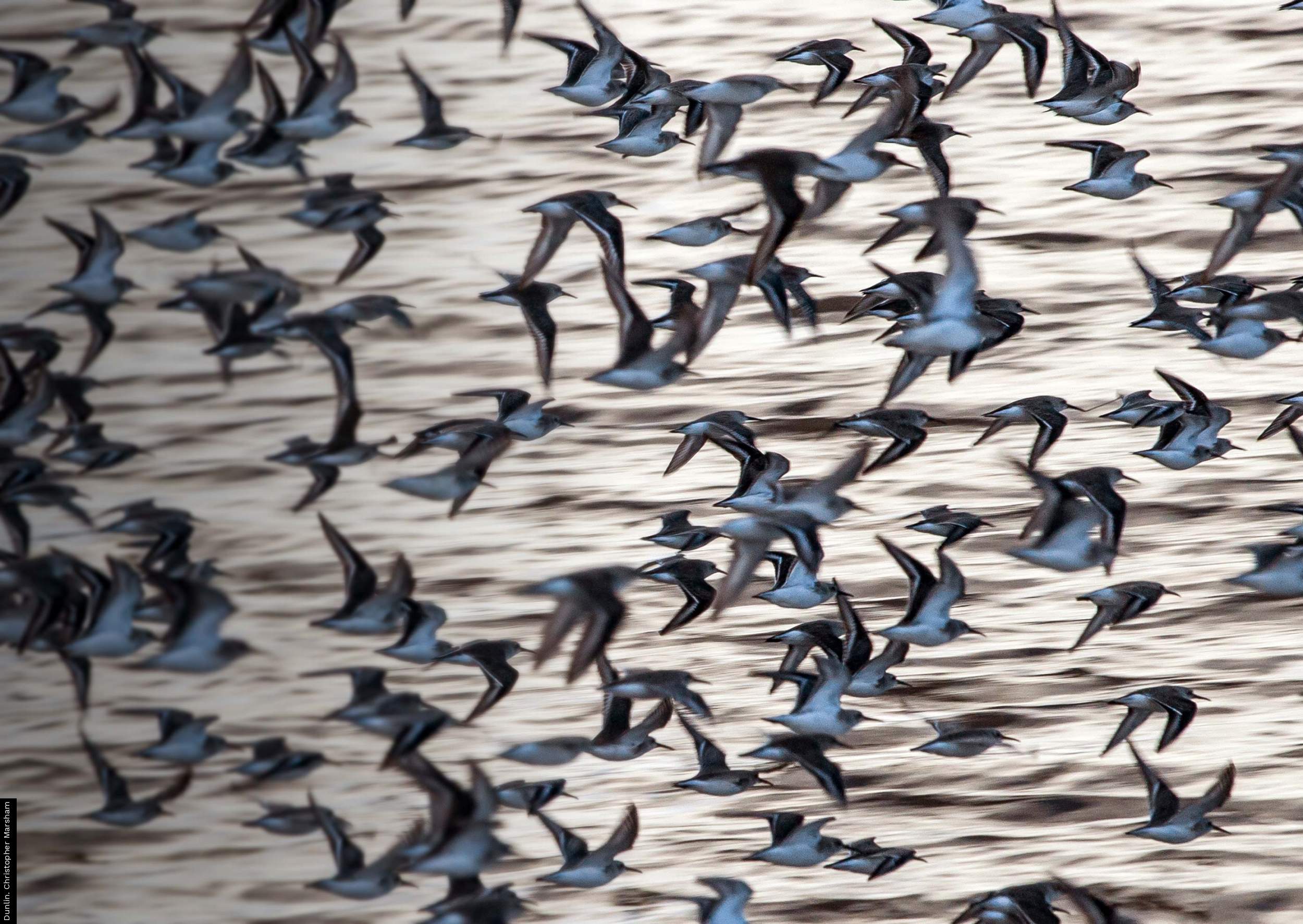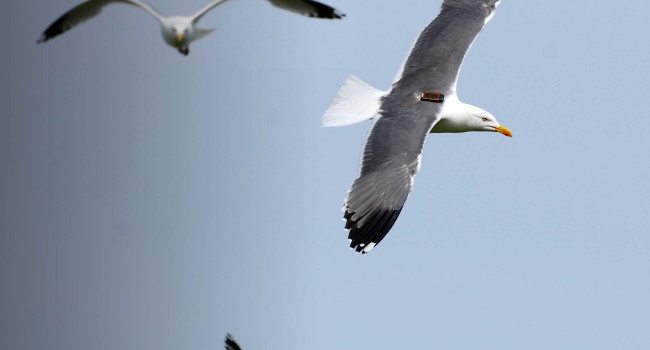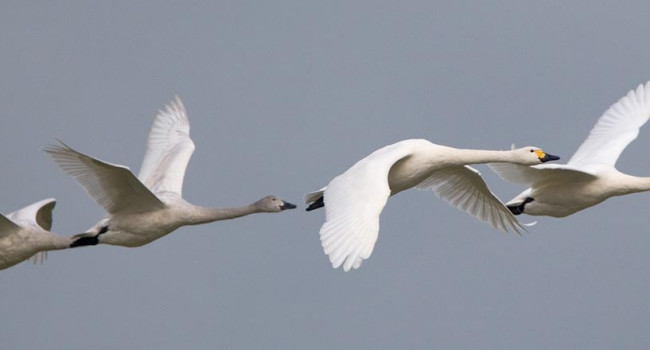New wave of bird flu rips through threatened gull and tern colonies
14 Jun 2023 | No. 2023-19
The recent spread of Avian Influenza among threatened gulls and terns is gathering pace, say experts from the British Trust for Ornithology (BTO).
At least 10,000 Black-headed Gulls, 4% of the total UK population, are feared to have died since the end of March. Hundreds of Common Terns have also died, with signs of severe losses for this species still to come.
BTO researchers want members of the public to help track the spread of Avian Influenza by reporting all dead birds through both the BirdTrack app and to Defra. In Northern Ireland, dead birds should be reported both through BirdTrack and DAERA.
Black-headed Gull mortalities from suspected Avian Influenza have more than doubled in the past month, with reports indicating that the new wave has spread across England and into Northern Ireland. Since the beginning of June, more than 200 Black-headed Gulls and a number of Common Terns are thought to have died from Avian Influenza at RSPB Window on Wildlife at Belfast harbour. The reserve has been temporarily closed to the public.
Black-headed Gulls often nest alongside other colonial birds, including Common Terns, with this species now also impacted at sites from Norfolk to County Antrim. 40% of the 800 breeding Common Terns at Shotton Steelworks in North Wales are thought to have died from Avian Influenza, along with half of the 400 that breed at nearby Seaforth Nature Reserve. Both Black-headed Gull and Common Tern feature on the Amber List of Birds of Conservation Concern. The long-term impact of Avian Influenza on these threatened populations will not be known for some time yet.
Although only a relatively small number of dead birds are tested for Avian Influenza, current sampling suggests very large numbers of Black-headed Gulls are already affected. All dead and sick birds of any species should be reported to BirdTrack, which allows researchers to follow the disease’s geographical spread and rapidly assess potential impacts on populations, and to Defra/DAERA, so that if needed, dead birds can be collected for testing.
Members of the public are reminded not to touch dead or sick birds and to keep dogs on leads to prevent the further spread of disease.
Professor James Pearce-Higgins, BTO Director of Science, said: “The spread of Avian Influenza through these inland breeding colonies of Black-headed Gulls and Common Terns is continuing. It represents the next phase of the battle against this virus that devastated so many of our coastal and offshore seabird colonies last year. We are only able to track the spread of Avian Influenza with the help of birdwatchers who submit their sightings to BirdTrack and Defra/DAERA, supporting the efforts of site managers and reserve wardens.”
Dawn Balmer, BTO Head of Surveys, said: “Thank you to everyone who has submitted records of dead birds to BirdTrack which allows us to monitor the spread of Avian Influenza, and also to Defra/DAERA, which may collect the birds for testing. Black-headed Gulls breeding at upland reservoirs appear to be badly affected at the moment, so we urge birdwatchers to check out breeding sites they may know of and report any deaths.”
Peter Coffey, Merseyside Ringing Group volunteer, said: “It is devastating to see Avian Influenza affect so many Black-headed Gulls and Common Terns at Shotton Steelworks, an important location for both species. Over a third of our adult Common Terns have already died.”
Contact Details
Tom Stewart (BTO Media Manager)
Mobile: 07585 440910
Email: press [at] bto.org (subject: News%20release%20enquiry)
Mike Toms (Head of Communications)
Mobile 07850 500791
Email: press [at] bto.org (subject: News%20release%20enquiry)
Images are available for use alongside this News Release. These can be downloaded here with the password CommonTern
Alternatively, please contact press [at] bto.org quoting reference 2023-19
Notes for editors
1 Further information about Avian Influenza can be found at https://www.bto.org/understanding-birds/avian-influenza
2 All dead wild birds should be reported via the BirdTrack app and to Defra (DAERA in Northern Ireland). BirdTrack can be accessed at https://www.bto.org/our-science/projects/birdtrack. The latest guidance from Defra can be accessed at https://www.gov.uk/guidance/report-dead-wild-birds and from DAERA at https://www.daera-ni.gov.uk/articles/wild-birds-and-advice-public.
3 Birdwatchers are also encouraged to check the Seabird Monitoring Programme vacant sites map at https://app.bto.org/seabirds/public/index.jsp. to see if sites are being counted.
Many inland colonies of Black-headed Gull are not counted annually so it would be great to receive information on the number of apparently occupied nests. Find out more: https://www.bto.org/our-science/projects/seabird-monitoring-programme
BTO is the UK's leading bird research charity. A growing membership and up to 60,000 volunteer birdwatchers contribute to BTO's surveys, collecting information that underpins conservation action in the UK. BTO maintains a staff of 100 at its offices in Thetford, Stirling, Bangor (Wales) and Belfast (Northern Ireland), who analyse and publicise the results of surveys and projects. BTO's work is funded by BTO supporters, government, trusts, industry and conservation organisations. www.bto.org






Share this page